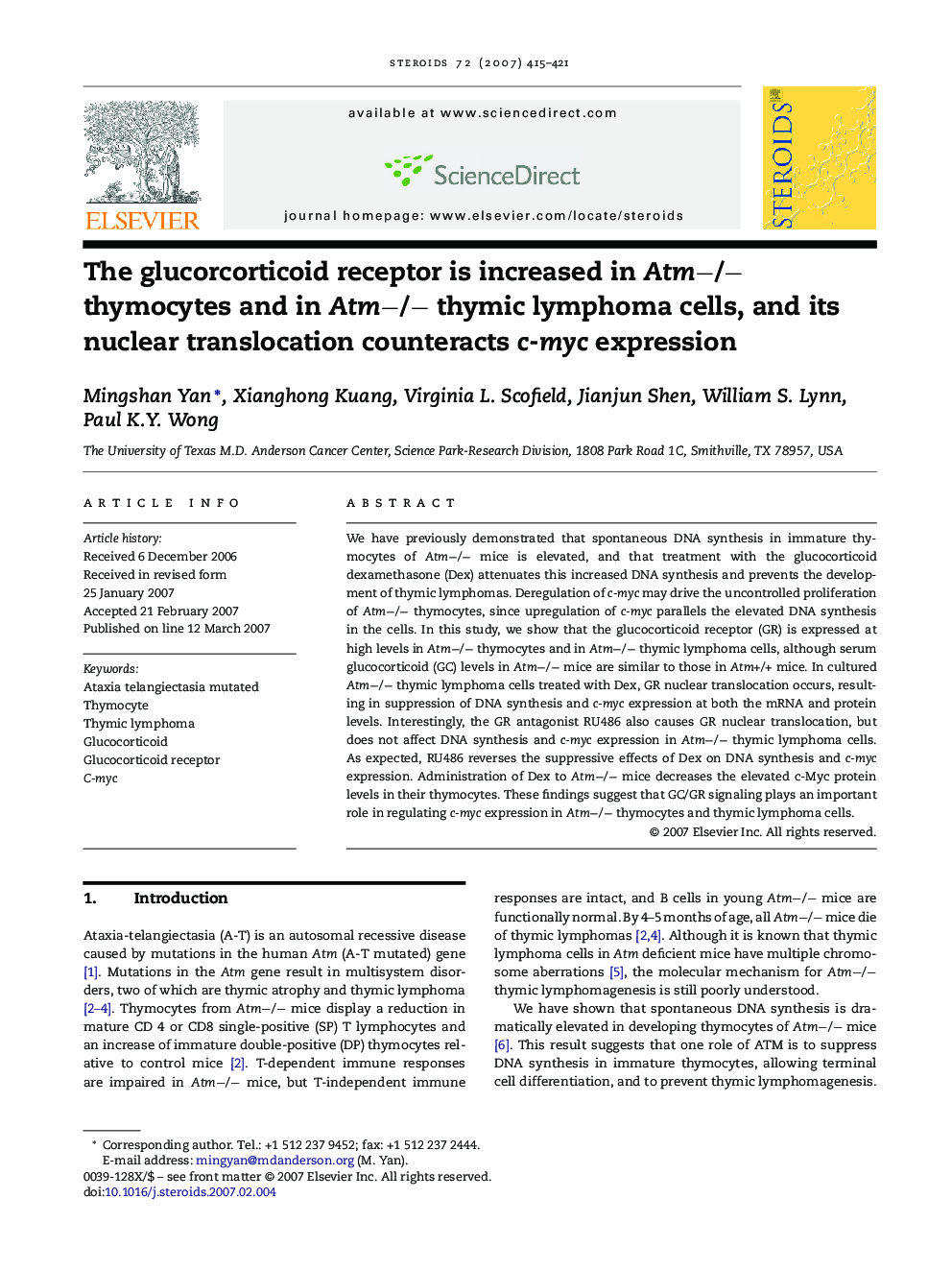| Article ID | Journal | Published Year | Pages | File Type |
|---|---|---|---|---|
| 2029523 | Steroids | 2007 | 7 Pages |
We have previously demonstrated that spontaneous DNA synthesis in immature thymocytes of Atm−/− mice is elevated, and that treatment with the glucocorticoid dexamethasone (Dex) attenuates this increased DNA synthesis and prevents the development of thymic lymphomas. Deregulation of c-myc may drive the uncontrolled proliferation of Atm−/− thymocytes, since upregulation of c-myc parallels the elevated DNA synthesis in the cells. In this study, we show that the glucocorticoid receptor (GR) is expressed at high levels in Atm−/− thymocytes and in Atm−/− thymic lymphoma cells, although serum glucocorticoid (GC) levels in Atm−/− mice are similar to those in Atm+/+ mice. In cultured Atm−/− thymic lymphoma cells treated with Dex, GR nuclear translocation occurs, resulting in suppression of DNA synthesis and c-myc expression at both the mRNA and protein levels. Interestingly, the GR antagonist RU486 also causes GR nuclear translocation, but does not affect DNA synthesis and c-myc expression in Atm−/− thymic lymphoma cells. As expected, RU486 reverses the suppressive effects of Dex on DNA synthesis and c-myc expression. Administration of Dex to Atm−/− mice decreases the elevated c-Myc protein levels in their thymocytes. These findings suggest that GC/GR signaling plays an important role in regulating c-myc expression in Atm−/− thymocytes and thymic lymphoma cells.
